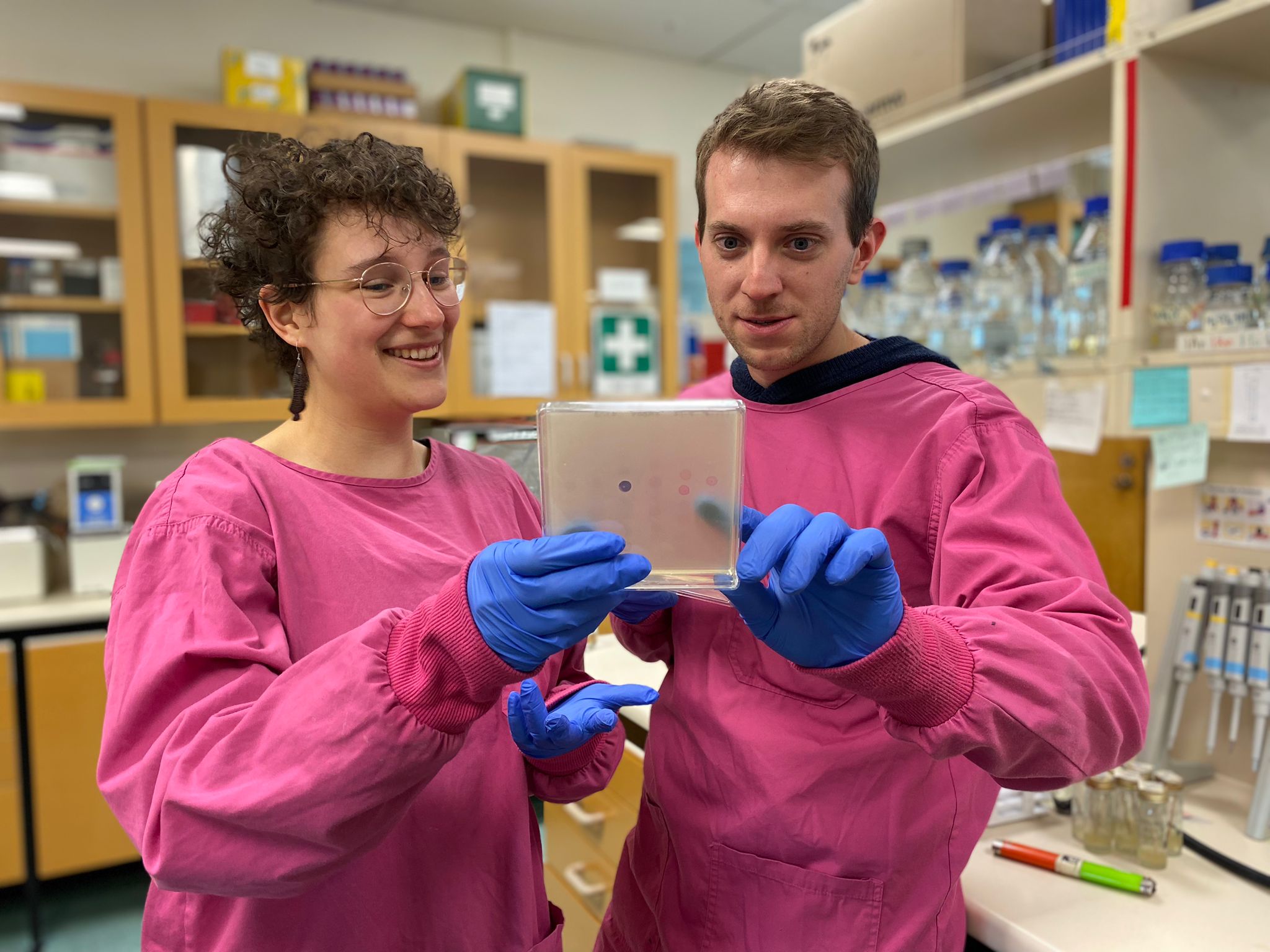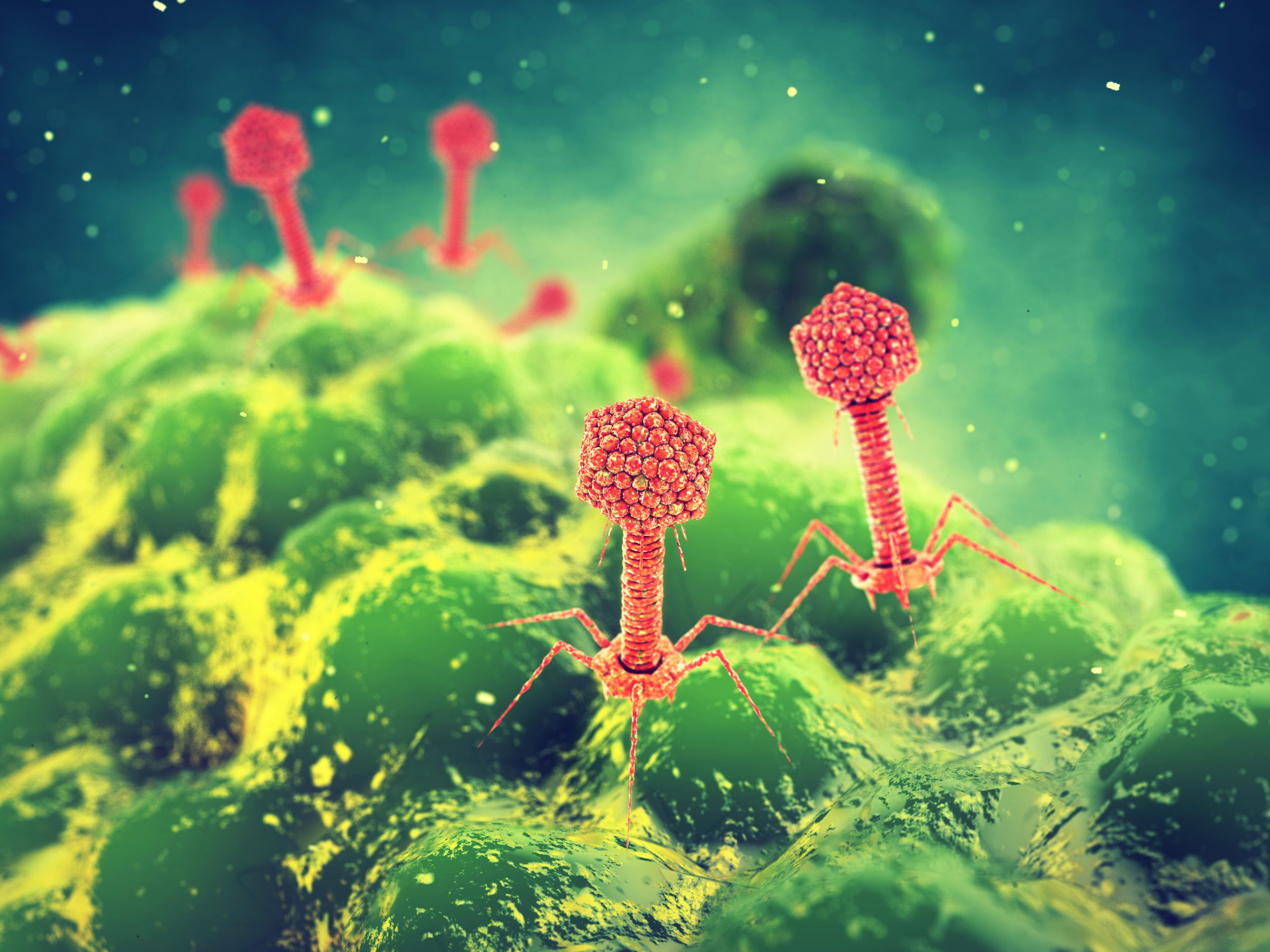28 November 2023

Phage force unleashed: Sarah de Roode and Dr Nils Birkholz from the University of Otago exploring the fascinating world of bacteriophages and their potential for disease management.
There are viruses out there, called bacteriophages or just phages, which specifically target bacteria. Nils is interested in the interactions between bacteria and phages, especially how bacteria protect themselves against these intruders. If researchers understand how bacteria defend themselves against phages and what the phage response to this defence is, this fundamental knowledge could contribute to the development of treatments for human or plant diseases.
Bacterial immunity is mediated by different defence systems, each of which is made up of one or more proteins that function in a specific way. For example, many of these proteins cut the DNA of an invading phage into pieces, thereby hindering it from replicating.
How exactly this is achieved can vary drastically between different systems. So far, scientists have identified many bacterial defence systems, but only a few of them have been examined in detail. Recent research also suggests that there are many more defence systems out there.

Phage infecting bacterium
Nils is aiming to identify and characterise such new systems by working with a collection of bacterial strains from the Pectobacterium genus that includes pathogens responsible for significant agricultural losses due to their ability to infect a variety of crops. Nils supervised Sarah de Roode, a visiting Masters student from the Netherlands, who already made great contributions to this work.
“We are infecting the bacterial strains with various phages to identify resistance patterns that might point to the presence of immunity. This can then potentially be traced back to a defence system. If we find any previously unknown systems, we would like to gain a detailed understanding of how it works to stop the phage from replicating or infecting,” says Nils.
From a fundamental perspective, researchers know that bacteria have a massive impact on global processes such as nutrient cycles and therefore all ecosystems. Hence, everything that affects bacterial fitness and survival is of immense importance – especially for phages, given that they outnumber bacteria by about ten-fold.
Phages are being trialled as a means of pest control in agriculture. Many important crop plants such as potatoes, apples and kiwifruit are vulnerable to infection by pathogenic bacteria, and using phages to eradicate these pests is one possible solution.
Nils says “In a country like Aotearoa New Zealand which relies heavily on agriculture, this use of phages is particularly interesting. If we know how bacteria defend themselves against phages and what the phage response to this defence is, we are better prepared to develop treatments for human or plant diseases.”
More Information
To learn more about Nil’s research, visit Fighting crop pathogens with viruses
